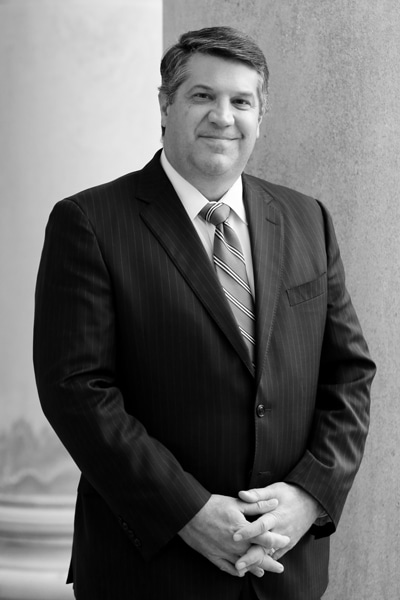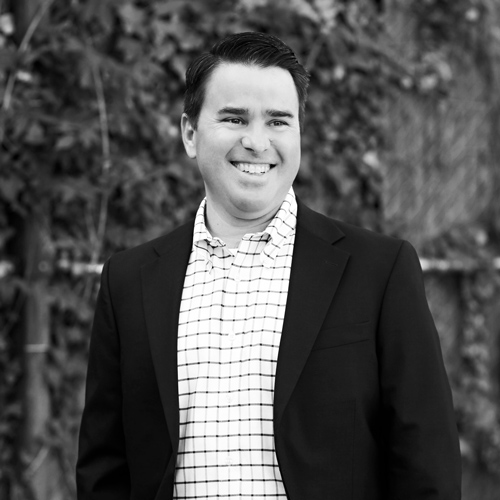
Craig Cook was twenty years into a career at IBM, and he showed no signs of slowing down. The job had offered him a variety of positions in three different states during his tenure. He had fourteen lawyers reporting to him, and staying there would have been the easiest choice at that point in his career.
But a period of introspection challenged Cook to change gears. “I don’t want to call it a midlife crisis,” Cook says. “It was more of a midlife awakening.” As a result, Cook assumed general counsel and secretary roles for Rensselaer Polytechnic Institute (RPI) in mid-2016, and his wealth of private-sector experience is paying off.
Cook’s jump to the New York-based research university wasn’t a blind one. RPI and IBM developed strong ties during Cook’s time at the tech company. Two Rensselaer alumni, whom Cook supported as lead attorney for IBM’s research division, led the Watson computer project—a memorable IBM venture because of its winning appearances on television’s Jeopardy!
Additionally, RPI announced that it would be the first institution of its kind to receive a modified version of the Watson system that faculty and students would use to find new uses for Watson and deepen the system’s cognitive capabilities. The IBM-RPI collaboration has continued to grow, with joint research in the areas of healthcare analytics and artificial intelligence.
“Some people buy a Harley. I went into higher education.”
Developing those partnerships is exactly what Cook has in mind for RPI’s future. “If you look at the universities who are going to be successful moving forward, then I think collaboration with business is going to be critical,” Cook says. “I feel like I had a leg up in really understanding what those businesses that want to partner are looking for in a collaboration.” Cook’s IP background can be especially helpful in navigating those partnerships and expectations.
One of IBM’s strengths, Cook says, is its ability to drive significant business out of its licensing of software, patents, and other intellectual property. “I see the universities—including Rensselaer—as a treasure trove of intellectual property that still has yet to be tapped to its fullest potential in terms of commercialization,” he says.
Unlike most tech companies or pharmaceutical companies, universities don’t have to be as secretive about their IP because they don’t face the same cutthroat competition. “Frankly, we want all of our intellectual property to be commercialized by companies out there,” Cook says. “So there aren’t those things that we’re holding back and saying, ‘No, this is only for our products.’”
Although developing partnerships with both large and small businesses is one of Cook’s key priorities, he has spent a good deal of time adjusting to the sheer breadth of additional complexities that a general counsel position in higher education includes. Those include issues pertaining to employment; student discipline; gifts, tax, and other nonprofit issues; regulatory compliance; real estate; cybersecurity; privacy; risk management; and more.
“You have the entire spectrum of legal matters that you would deal with in a business,” Cook says. “They all come here. On top of that, you have all of the things that are unique to higher education. It can be daunting, but it also keeps things very interesting.”
To manage these issues, Cook—the sole in-house attorney at RPI—relies on a trusted network of outside counsel, nonlawyer experts, and trusted RPI staff. He praises his colleagues and team for helping him navigate such a wide array of complex issues on a daily basis. He’s currently in the process of developing a model that might serve to bring more of that task management in-house.
As secretary of the institute, he works with RPI’s board of directors. Cook says that he’s been inspired by not only RPI’s president, Dr. Shirley Ann Jackson, but also by a board that has a personal investment in the university. “We have a very active and engaged board of real luminaries in their fields,” Cook says. Most of the board are alumni, and Cook says they all take a hands-on approach to make RPI the best it can be. Although the secretary role is new for Cook, he says that Jackson’s leadership has influenced him greatly.
Cook and his colleagues at Rensselaer are currently focused on its fundraising initiative called Transformative: Campaign for Global Change. The institute announced the effort in October 2017, seeking to raise $1 billion for student scholarships, faculty support, and campus enhancements. For Cook, the project offers the opportunity to support the effort by working with the philanthropic arm of RPI in areas such as gift agreements, trusts, and estates.
Although crossing over from the private sector has meant learning to flex a whole different set of muscles, Cook says it has been an easier transition than he thought. His midlife awakening has offered much more than any midlife crisis. “It certainly is exhilarating,” he says. “Some people buy a Harley. I went into higher education.”
Photo: Kris Qua

